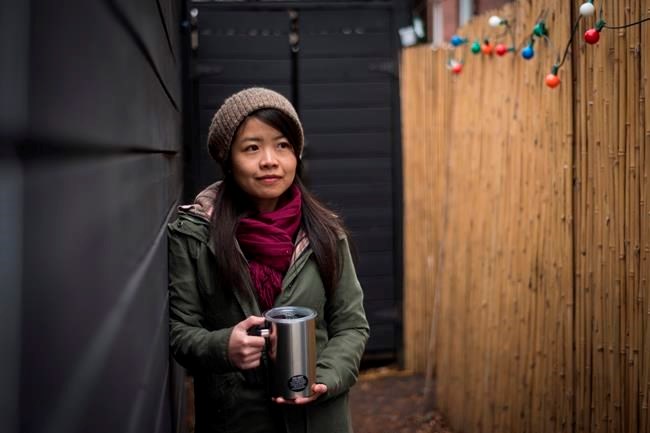The first thing Muryani Kasdani gave away online was a box of muffins left over from a work event.
The 35-year-old designer was surprised by the level of interest in her second-hand baked goods but loved the experience of giving something away for nothing.
“The woman who came and got them lived right around the corner,” she says. “She was about my age and we ended up chatting a little bit. It was really cool to know I could meet my neighbours that way.”
Kasdani is one the thousands of Canadians who’ve joined giving communities on social media in recent years. The groups, which mostly exist on Facebook, range from neighbourhood chapters of the Buy Nothing Project — a decentralized global movement with a manifesto, rules and a code of conduct — to less organized, city and regional “free stuff” pages.
For members, reasons for participating vary. Official Buy Nothing groups are explicitly focused on creating a sense of community, while some participants in other groups are looking to save a little money or declutter their homes. For Kasdani, it’s a matter of reducing her environmental footprint by reusing unwanted items.
“It is a younger crowd,” she says. “I think younger people are more aware of their environmental impact in the world, and my group is closely affiliated with other sustainability initiatives like Zero Waste Toronto.”
Kasdani was a member of a Buy Nothing group in Vancouver for several years and enjoyed the sense of community so much that when she moved to the Roncesvalles Village neighbourhood in Toronto's West End last year, she decided to start a local chapter.
Twelve months later, Buy Nothing Roncesvalles/Parkdale has several hundred members and is home to posts offering everything from free cat food to partially used laundry detergent, unloved fur hats to surplus office furniture.
But to focus on the nature of the items being given away would be to miss the point, according to Gulay Taltekin-Guzel, a PhD candidate at York University’s Schulich School of Business.
“The item is not important, the symbolic meaning that it carries is important,” says Taltekin-Guzel, who studies consumption habits and online communities. “You give up something to make another person happy, to create a bond and connection.
“It's all about community. Since ancient times there have been rituals associated with gift giving. In modern times, these Facebook groups serve the same purpose.”
The Toronto academic believes that role is even more important during the COVID-19 pandemic, as many people suffer financial hardship and find themselves disconnected from friends and loved ones.
“Especially during this pandemic, I think the importance of the local community is becoming even more prominent,” she says. “Many social spaces and events are closed, so people are only seeing other people in their neighbourhood. An online space can give you that sense of connection even with people in the neighbourhood you've never met.”
She also suggests that Canadians’ increasing reliance on e-commerce has left them craving fact-to-face interactions they might once have got from visiting local stores.
“People are buying more and more things online, we're increasingly reliant on Amazon. But there's a social aspect to commerce, and people also want to feel connected. So instead of shopping, you can turn to the Facebook group.”
All that makes sense to Kasdani, who will be sad to relinquish her role as an administrator in the group she started when she moves house next month.
“The gifts come second,” she says. “The first thing is creating a neighbourhood feeling. The free stuff is just a means to an end.”
This report by The Canadian Press was first published Nov. 24, 2020.
Alex McClintock, The Canadian Press



